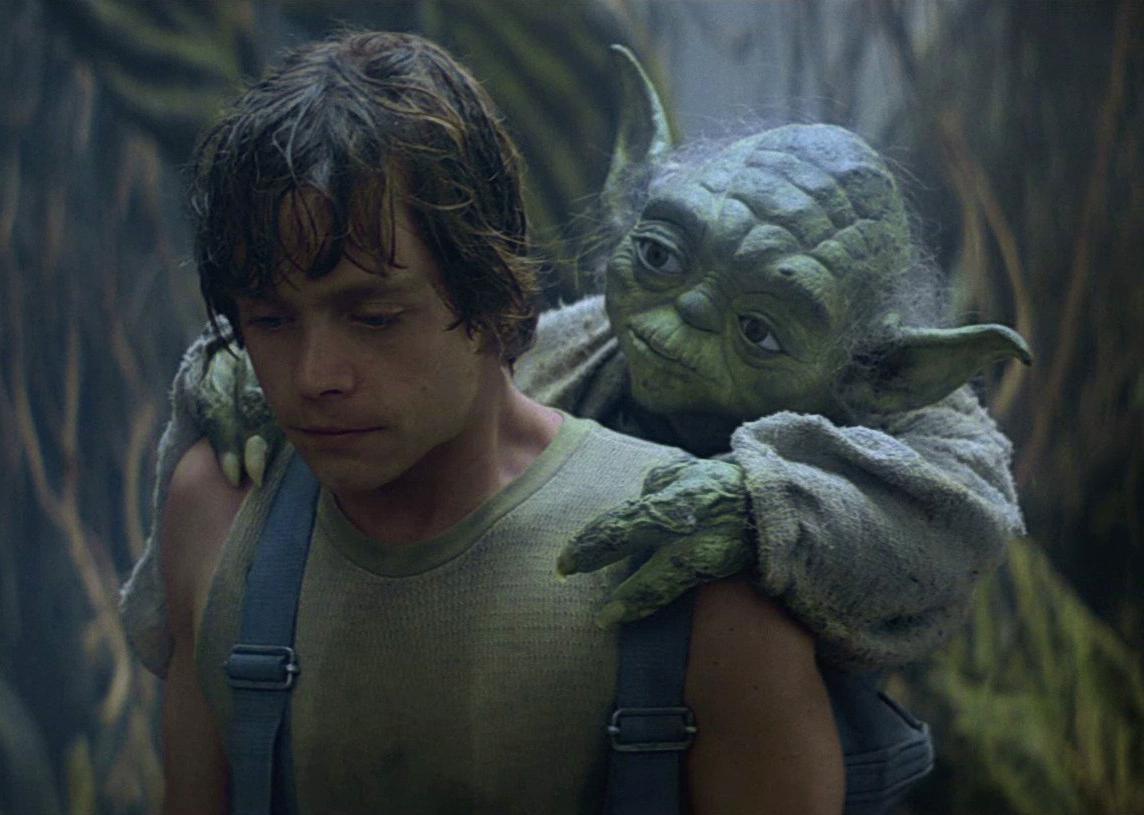Editor’s Note: “Over a Beer” is a regular column written by Greg Heil. While Greg is the Editor in Chief for Singletracks.com, any opinions expressed in this column are his alone and do not necessarily represent the opinions of Singletracks.com.
Confession time: I’m a sci-fi and fantasy nerd. I always have been and as far as I can tell, I always will be. I’m attracted to reading and watching sci-fi and fantasy for a number of reasons, but I think the primary draw is the presence of the magical in these books, TV shows, and movies. Even in hardcore science fiction in the classic sense, the “magical” elements present are the advanced science or futuristic civilization that doesn’t exist yet.
Don’t just think of wizards and Jedi, either–the recent resurgence of superhero fantasy, transforming comic books into movies, taps into these same mental and emotional places dominated by a thirst for magic.
As the popularity of these genres indicate, I think there’s something deep within the human soul that yearns for something outside of itself, a sense of grandeur, of magic, of mission and purpose, of fulfillment–whether that purpose is exploring the stars or defeating Voldemort.
I think that too often in our culture, sci-fi and fantasy are only embraced on the surface level, but when someone really connects with this theme of the great and the unknowable, the magical on a deep level, the criticism begins to reign down. Terms like “nerd,” “geek,” and a general derision are employed, because it seems that these sci-fi and fantasy nerds like myself cannot cope with real life. When in reality, when people avoid these themes and don’t ask ourselves what our souls are really longing for, what we really need to feel complete, we’re simply avoiding the existential void and putting off dealing with that terrible abyss for another time. I have some theories about what things in life can adequately complete our need for the unknowable, for greatness, for the magical, but that’s probably a topic for another time.
Rather, I’ve lately become interested in the magic that can be discovered and practiced in everyday life.
Let me explain.

One trope I’ve observed over and over again through decades of reading sci-fi and fantasy, is the student who isn’t willing to apply himself to learn the magic. Take, for instance, Harry Potter and Ronald Weasley and contrast them with Hermione Granger. Or look at Luke Skywalker abandoning his training in The Empire Strikes Back. Or contrast Quentin Coldwater with Alice Quinn in The Magicians (although eventually Quentin does a much better job than Harry ever did). The list goes on.
Whenever I read about the student who doesn’t want to learn magic, I think to myself: “You idiot! Magic exists, and you don’t care about learning it? This is easily the most powerful force in the universe, and you are one of the chosen few who has access to it and can learn as much as you like… yet you’d rather play Quidditch? Fool!”
If I was attending Hogwarts, I’d be way more like Hermione Granger than Harry Potter… but I wouldn’t study for the acceptance and affirmation of my teachers like Hermione. Instead, I’d study precisely because I was studying magic, and it would be the most powerful thing that one can learn or possess.
As I thought about this trope, I asked myself: “Is there anything in real life that we treat like these wayward students treat magic?” So far, I’ve come up with at least two examples of real-life magic that we generally seem to avoid training for like the plague: wisdom and health/fitness.
Wisdom

If we actually pause long enough from the hustle and bustle of our daily lives to think about it, I think most people will agree that wisdom is something to aspire to. Yet so often, I think we fail to consciously train for wisdom–I’m including myself in this criticism.
Sometimes I think our lack of wisdom training is based on an assumption that wisdom, by default, comes with age and experience. However, that’s not necessarily the case. Even when we deal with and work through life experiences, we still have to make a conscious choice to analyze those experiences and learn from them in order to become wiser… and many people don’t take that final step. If you take a minute and think about it, I’m sure you can generate examples of people you know who lack wisdom even in their old age. Conversely, you can probably also come up with examples of young people you know who have wisdom beyond their years.
Thankfully, if we consciously make a choice to invest in training our own personal wisdom, I firmly believe that we can all grow in knowledge, wisdom, and discernment. The ways forward to accomplish this training are many, but it all begins with a choice. A choice to not settle for the status quo but to instead, continue to grow as wise human beings.
Health and Fitness

Depending on who you’re talking to, investing time in health and fitness could be a serious part of that person’s daily life, or it could be the complete opposite. America seems a bit bipolar in this respect. As mountain bikers we are generally deeply rooted in a culture of health and fitness, so it can be hard to comprehend that 1 in 3 Americans is obese, and another 1 in 3 is overweight. That means that two thirds, or 66% of Americans, haven’t taken the importance of health and fitness to heart. (Source)
At the risk of stating the obvious, we only get one body. We only get one life. And if we don’t take care of our bodies, if we don’t focus on health and fitness, they will suffer and consequently, so will the rest of our lives. Yet for some reason, millions of people sacrifice the well being of their one and only body in pursuit of something else. Whether it’s leisure, the pursuit of money and prestige at the expense of fitness, or some other reason, millions of us have sacrificed our health. And once it’s gone a long ways down the wrong road, it’s difficult–or even impossible–to get back.
“Well, we’re mountain bikers,” you might think. “We don’t have to worry about being unhealthy because hey, I just climbed over that mountain over there!”
While thankfully our preferred pastime has the beneficial side effect of helping to keep us in shape, pedaling our bikes isn’t actually enough to keep us fit and healthy. We need to cross train to keep other muscle groups strong.
I’ve personally found that as my metabolism continues to slow, I can’t just eat and drink whatever I want anymore. No amount of mountain biking can offset that consumption. Eating right and staying fit takes willpower, dedication, and a lot of time and effort. It’s easy to see why the average American doesn’t dedicate the time to developing health and fitness.
If there’s anything that’s magical in this world, it’s optimizing the limited resources that we have in order to make our lives and our limited time on this planet the best it possibly can be.




















